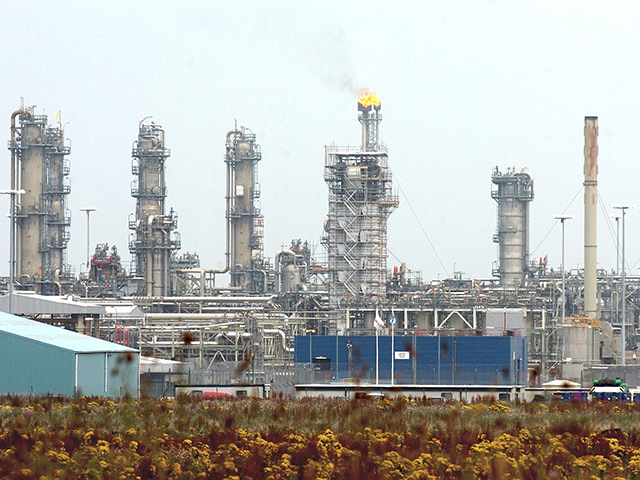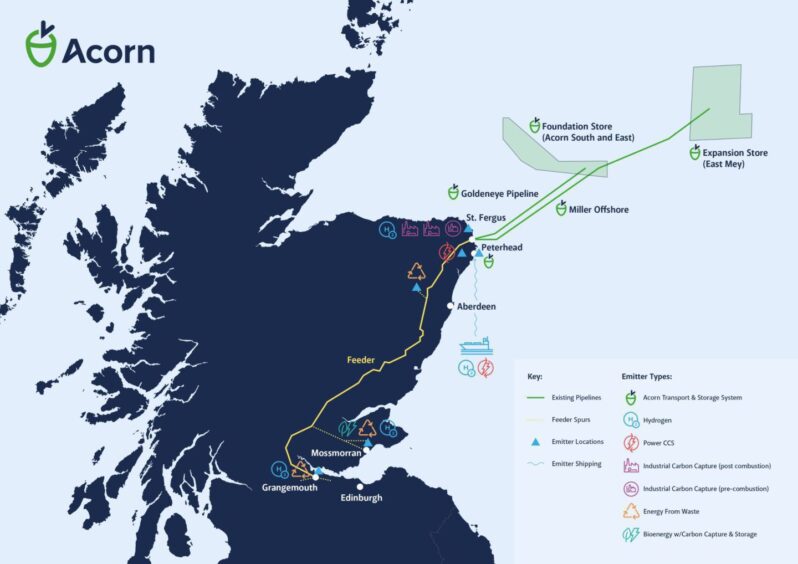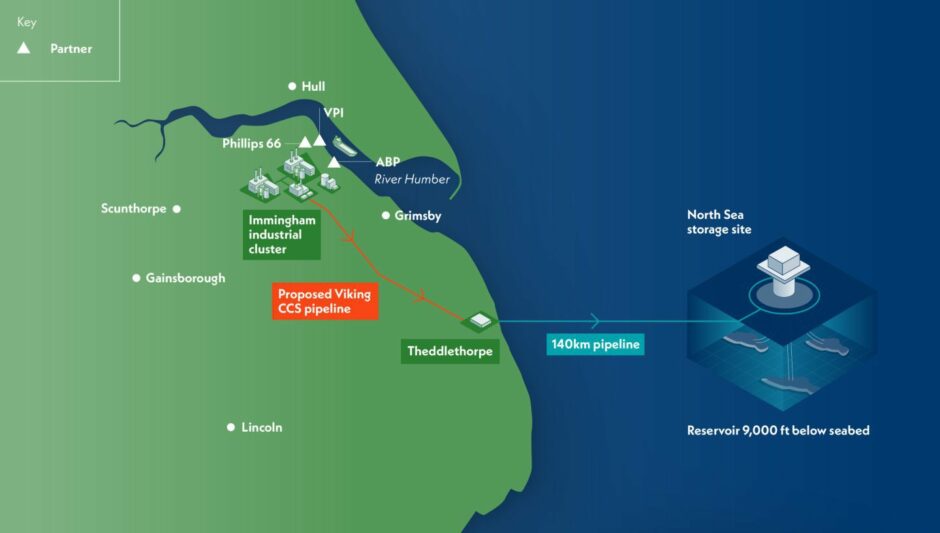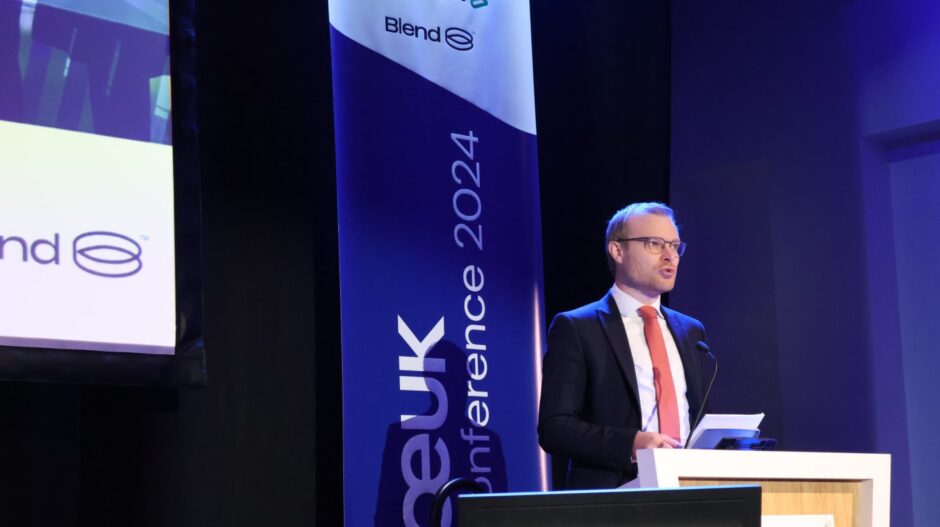
Scotland’s Acorn and Humberside’s Viking carbon capture projects will have to wait until the spring budget to hear what the UK government can do to support them.
Department for Energy Security and Net Zero (DESNZ) director carbon capture utilisation and storage at Alex Milward has said decisions about so-called track 2 projects won’t be announced until the next fiscal event in 2025.
There was widespread welcome after the UK Government announced £22 billion investment plan to support CCUS projects on Teesside and Merseyside, in a move aimed at bolstering investor confidence and establishing the UK as a global leader in the ability to capture carbon across a range of industrial processes and store it safely.
However concerns have been raised over the impact the government’s focus will have on other CCUS projects including the Acorn scheme in St Fergus near Peterhead which takes in many partners including Shell (LON: SHEL) and and Harbour Energy’s (LON: HBR) Viking CCUS scheme in Humberside.
Trade body Offshore Energies UK (OEUK) said the UK must accelerate further its investment in carbon capture and storage (CCUS) in order to meet targets on reducing polluting carbon emissions after “false-starts” over the past decade.
The north-east of Scotland particularly around Peterhead has seen a number of potential CCS schemes fall on the scrap heap.
In its recently published Carbon Capture Utilisation and Storage Insight, OEUK said:
“The UK’s CCUS sector has experienced a series of false starts over the past decades, however, CCUS remains essential for achieving net zero emissions by 2050 and this report shows that immediate deployment is crucial if we are to meet our climate targets.”
It said the recent investment “will build the foundational infrastructure necessary to kickstart this nascent sector” but warned starting work on the first two clusters “is only the beginning”.
It added: “The process must accelerate if the UK is to fully maximise the potential of CCUS and meet its 2030 and 2035 deployment targets.”
Urgent
An Acorn spokesperson insisted support for track 1 projects is crucial for enhancing investor confidence but emphasised the importance of securing clarity on funding and timelines for upcoming track 2 projects, highlighting the potential of the Scottish Cluster, with Acorn at its centre, to significantly contribute to the UK’s net zero commitments.
In a statement the group said: “We will continue to work with government to seek urgent clarity on funding and timelines to enable track 2 projects to move forward at pace and to seize the momentum needed for the UK to meet its climate targets.”
Graeme Davies, executive vice-president of CCS at Harbour Energy, echoed this sentiment, noting that while the progress on track 1 is promising, the government must expedite track 2 projects to maximize their impact on emissions reduction targets.
Mike Tholen, OEUK’s sustainability and policy director, underscored the importance of the CCUS sector for industrial decarbonization and low-carbon hydrogen production. He called for rapid advancements in track 2 clusters and the establishment of a transportation and storage route for emissions outside the existing tracks to ensure long-term investor confidence.
In a broader context, Simon Virley, vice chair of KPMG UK, highlighted the critical need for successful CCS implementation in the UK, stressing that previous attempts over the past 15 years had fallen short. He called for consistent clarity and support to foster a thriving CCS industry.
Energy minister Michael Shanks asked for patience.
Speaking to Energy Voice, he said the government “absolutely recognise the benefits” of the Scottish cluster and that it is “in the process” but said the sequencing plan – the different tracks – was not this government’s plan.
“We didn’t devise the process that got to the tiers that they are now in,” he said.
“But government is looking at that project and about expansions of other projects.
“We’ll make announcements in due course, but it’s not something that we’re prepared to announce immediately.
“There will be more coming out in the months ahead, about what we see as the next steps for carbon capture.
“It’s a really important part of our industrial policy and our energy policy, but we need to work through these things.
“In still less than 100 days we’re moving at pace with these things, but it is worth remembering just the sheer amount we inherited that was unfinished from the previous government.
“We’re moving as quickly as we can to deliver it, and we want to retain that confidence of industry as much as possible.”
Recommended for you


 © Supplied by Storegga
© Supplied by Storegga © Supplied by Viking CCS
© Supplied by Viking CCS © Mathew Perry/DCT Media
© Mathew Perry/DCT Media